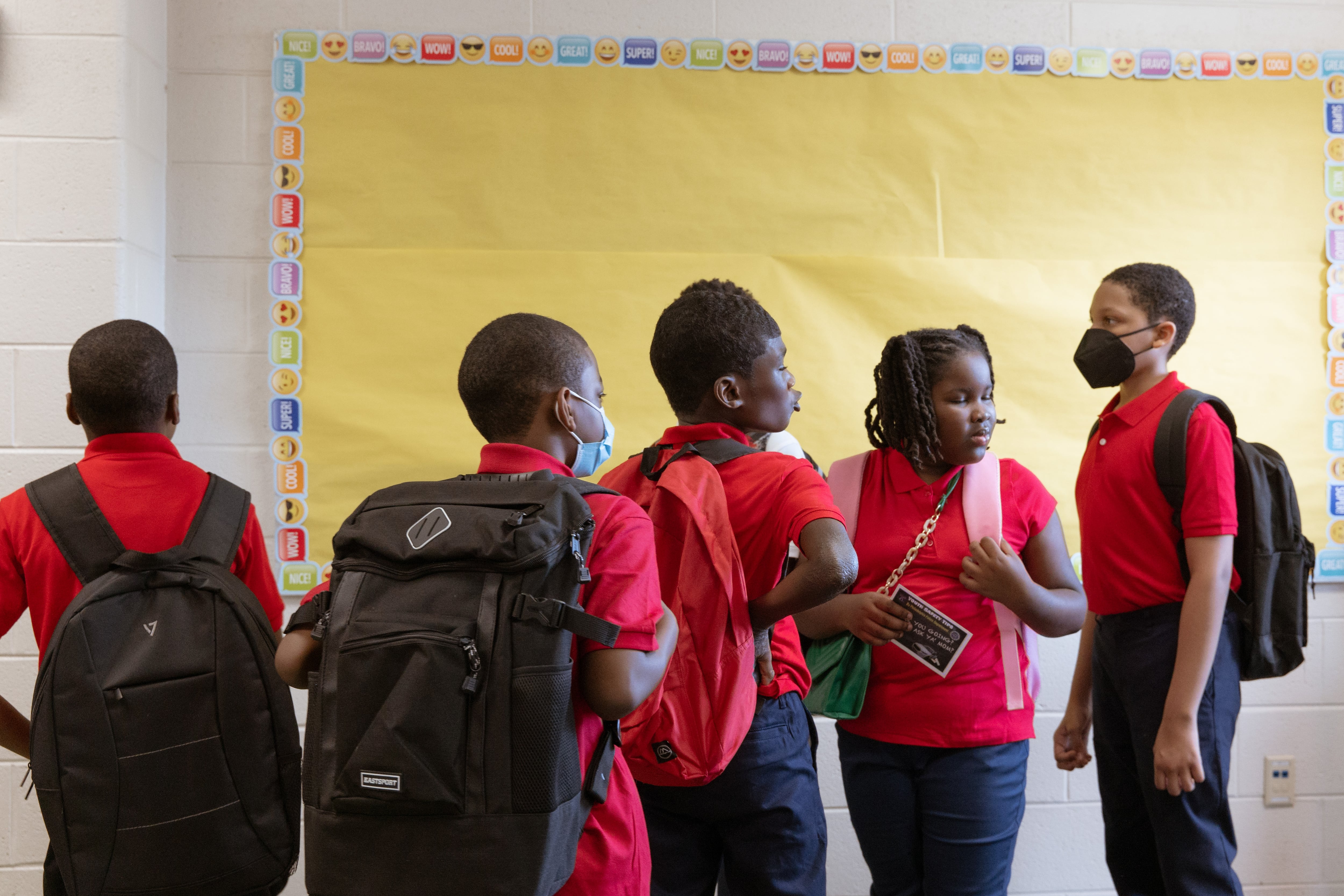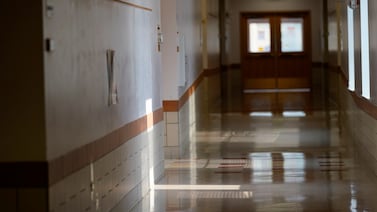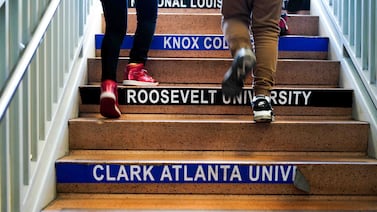Sign up for Chalkbeat Philadelphia’s free newsletter to keep up with the city’s public school system.
Education advocates said Friday they were encouraged by the report from the Basic Education Funding Commission, calling it a potential “game changer” for student opportunity in Pennsylvania if the General Assembly and Gov. Josh Shapiro implement its recommendations.
The report, approved on Thursday, recommends increasing school spending, drawing up a plan for what it means to fund students “adequately,” and overhauling charter school funding, among other proposals. The commission’s suggestions act as the first step in the state’s response to a 2023 Commonwealth Court ruling that the way Pennsylvania funds its schools is unconstitutional.
In a call with reporters, the advocates played down the divided vote on the commission, which approved the report by an 8-7 vote largely along party lines. All but one Democrat voted in favor and all Republicans opposed. And the Democratic dissent was from a legislator who felt it didn’t go far enough.
“This provides almost everything we need for a roadmap for success,” said Sharon Ward, senior policy adviser to the Education Law Center, which represented the plaintiffs in Commonwealth Court along with the Public Interest Law Center and the private law firm O’Melveny and Myers LLP.
But she and others also said that they would continue lobbying around the state to build political support for the larger state education investment that the commission is calling for.
Last February, after a four-month trial, Commonwealth Court Judge Renée Cohn Jubelirer ordered the state’s school funding system to be revised, responding to a lawsuit brought by six districts, several parents, and some advocacy groups. She ruled that the system deprived many students of a “thorough and efficient” education required by the state constitution and violated the federal right to equal protection.
After months of hearings all over the Commonwealth, the commission said Pennsylvania should increase its spending on K-12 education by $5.4 billion over the next seven years to meet the constitutional mandate, with most of that money, $5.1 billion, coming from the state rather than local districts. It also set a method for determining the amount each of the state’s 500 districts — which vary widely in demographics and poverty levels — would need to reach adequacy for their students.
“While not every (commission) member supported this, the minority accepted the court ruling,” said Marc Stier, executive director of the Pennsylvania Policy Center, a Harrisburg think tank, noting that Republican legislators who argued in court to keep the funding status quo did not appeal Jubelirer’s ruling. He noted that the Republicans’ 92-page minority report laid out a series of ways schools could be improved, “which cannot be put into place without new funding.” That report got six yes votes on the commission, six no votes, and three abstentions.
Donna Cooper, executive director of the advocacy group Children First, said “Republicans did not refute that there was an adequacy gap, and they were very clear to say that the solution to that needed to be found in the General Assembly.” She said the advocates “are looking forward to working with members on both sides of the aisle” to come up with a plan and to “rally parents, teachers, concerned citizens in every district, Republican and Democrat, to stand behind (legislators) as they do that.”
“ZIP code should never dictate the level of education students receive,” said Melissa Robbins, of the local Urban League chapter. David Heayn-Menendez, of the Latino advocacy group ACLAMO, described how so many Latino students in the city attend schools without basic amenities like a functioning library and a school nurse.
The commission report “lays a path to invest in our children, support our educators, and be a Commonwealth that genuinely supports the common good for all,” he said. “It is a commitment to bridging the gaps that have hindered our education system for generations.” No family, he said, should be “choosing between the future of their children and where they can afford to live.”
Pennsylvania is currently more reliant on local rather than state funding for its schools, with wide disparities in education spending depending on a district’s wealth. The national average for the state contribution is about 55%, while in Pennsylvania it is just 45%, which means that residents of the poorest districts are often overtaxed locally.
The commission’s recommendations included earmarking nearly $1 billion to ease the burden on high-tax districts.
Philadelphia is one of the districts with a high proportion of students from low-income families and has long argued that it has been shortchanged by the state. Its per-pupil expenditures fall below most of the surrounding suburbs, even though it serves a student population with greater overall needs.
Under the commission’s proposal, it would stand to see its annual state aid, now around $2 billion, increase by some $1.4 billion, or 70%, in seven years.
David Lapp of Research for Action said that such a boost would allow Philadelphia and other historically underfunded districts to give students more access to certified teachers, counselors, rigorous curricula, healthy facilities, and smaller class sizes — benefits that are taken for granted in wealthier areas.
“We believe the Commission’s report is a crucial first step forward ending the systemic underfunding of the School District of Philadelphia,” said Superintendent Tony Watlington in a statement. “We look forward to working with Governor Shapiro and the General Assembly to make its recommendation a reality in the coming months.”
In their own report, Republicans took issue with the commission setting adequacy targets at all, while also disputing the method it used.
“Unfortunately, the Commission could not reach a consensus on a model for measuring adequacy to recommend to the General Assembly. … It is up to the General Assembly to determine the appropriate adequacy model,” the Republican report said.
It added that any additional funding sent to districts “must include an accountability component to ensure those districts invest in programs that focus on high-quality academics.”
In court and in general, Republicans have long disputed the correlation between the amount of spending and education quality. House Republican leader Bryan Cutler issued a statement saying the report “continues the false choice that providing only more state funding will improve Pennsylvania’s public schools.”
He and other Republicans favor more choice for parents, including the creation of more charter schools and vouchers for private schools. They also cautioned that any big increases in education spending could result in higher taxes, especially when federal pandemic aid runs out.
The advocacy groups have said that if the state does not adopt a funding system that meets the constitutional mandate of adequacy and fairness, they will go back to court.
“What’s really going to be important is the acknowledgement that this is not just going to be a report on paper, but a report that informs the governor’s budget proposal,” said Ward. “It is and will be a game changer.”
Dale Mezzacappa is a senior writer for Chalkbeat Philadelphia, where she covers K-12 schools and early childhood education in Philadelphia. Contact Dale at dmezzacappa@chalkbeat.org.






